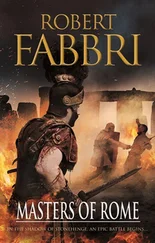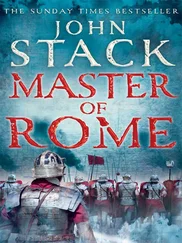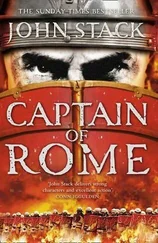Although the battles he fought in the Senate against the other ambitious men of Rome were as fierce as any he had faced on the battlefield, they lacked the element of physical danger, of pitting one man’s strength against another’s. It was a sensation he relished, and he now lived it vicariously through the fighting men he trained for the arena. Khalil was one of his current stock, a tall, sinewy, powerfully built Nubian whose eyes, although clear and open, seemed to hide a defiant streak that came from having been taken in slavery and not being born to it. Scipio had bent this man to his will, knew he would now kill at his command, but he also knew that it was dangerous to keep such a man in his household, to turn his back on him, to allow him even to approach while he slept. It was this danger, this element lacking in the Senate, that Scipio found intoxicating. It had driven his career in the legions and it had drawn him now to the battlefields of Sicily, to be once more around the fighting men of Rome.
Scipio allowed Khalil to help him undress and the female slaves washed his body before massaging warm oil into his upper torso. They dressed him in a clean white linen tunic and then stood back against the door, waiting for his next instruction.
His habitual routine complete, Scipio began pacing the room, his mounting excitement at the voyage ahead light in his veins. The thoughts of once more facing mortal danger heightened his anticipation.
‘Make ready for my departure for Rome at dawn,’ Scipio ordered Khalil, who immediately turned to leave. The two female slaves made to follow him.
‘Wait,’ Scipio said, causing the three to stop. ‘You stay,’ he ordered, indicating the second of the two women. The others left, closing the door behind them. The woman stood waiting, the basin of cooling water heavy in her hands. She was Sicilian, tall and dark, with large brown eyes and long hair. Her coltish legs were accentuated by the short stola dress she wore, the cord around her waist emphasizing the flair of her hips. Scipio estimated that she was no more than twenty. With a nod of his head he indicated his cot in the corner of the room and she moved towards it, placing the basin on the ground as she went, the simple gesture heightening Scipio’s raw desire. Her expression never changed as she acquiesced, her face adopting the servile look of all slaves as she lay down on the bed.
Scipio had called her to his room the night he’d arrived in Brolium, but this time was different. She could see the Roman could barely contain his sudden desire. Scipio never questioned why impending danger had this effect on him, he simply gave vent to his base desires. Tomorrow he would take sail back to Rome and he would need to show the calm exterior of a leader of Rome to all on board the galley. He would need to bury deep the excitement and lust for action threatening to manifest itself in his expression. Only now, in the privacy of his quarters, as he moved slowly towards the woman, could he give in to his emotions, the brief coupling a chance to assuage his exhilaration at the approach of danger.
The sun had become a memory for the men on board the Aquila as they continued preparations for the dawn departure. The sky still held the light of the departed star, but it was rapidly losing ground to the approaching night, the headlands at the edge of the harbour mouth becoming mere darkened shadows against the more reflective sea.
Lucius approached Atticus on the foredeck.
‘We’ll be ready to sail by dawn, Captain. The last of the supplies are just arriving from the port barracks.’
‘Very good, Lucius. Have my cabin cleared and made ready for the senior consul.’
‘Yes, Captain,’ Lucius replied, and was immediately away.
Atticus moved to the starboard rail. All around him the frantic activity of preparation continued. As always the sound most commonly splitting the air was the roar of Lucius’s voice, his words a whip crack to a careless or indolent crewman. To Atticus the sound was as much part of the ship as the creak of the deck timbers or the lapping of the tidal waters against the hull ten feet below him. His mind tuned out the sounds as his eyes wandered over the barges spread out across the harbour before him. In the near darkness he could vaguely distinguish their shapes, their hulls swinging slowly against the hold of their anchor lines as the current of the outgoing tide kept their hulls in parallel with each other and perpendicular to the dock. The same current pulled at the hull of the Aquila , drawing her away from the dock. She answered in kind, as if eager to sail, a creature born to the sea, pulling gently at the ropes that held her fast.
The words of Septimus’s former centurion, Marcus, rang in Atticus’s ears: ‘Whatever needs to be done, you need to do it,’ he had said, and Atticus remembered how Septimus had consented without hesitation, revealing the unbreakable bond between former comrades and fellow Romans.
A descendant of Magna Graecia and a sailor all his life, Atticus had never felt any attachment to the Roman citizens of the land-based legions. His duty had always been to his ship, his crew and the people of the Ionian coast under his protection, not to a Republic that was forged by men who were a breed apart from the people of his home city, Locri.
Atticus’s ancestors had migrated from Greece over generations, slowly evolving and adapting the local culture to their own. In contrast, the legions of Rome swept over entire regions in a fraction of a lifetime, transplanting their culture and the ideals of their city as they went, absorbing entire populations into their Republic within a single generation.
Atticus stood on the border of two worlds, his friendship with Septimus drawing him ever closer to Rome and the legions, while men like Scipio and Marcus blocked his path with distrust and age-old animosity. Beneath it all, Atticus could hear his ancestors whisper censure and lament for his association with Rome as they spoke of an ancient loyalty to his people who, for over five hundred years, had made southern Italy their own.
The day dawned with the scent of must in the air, the scent of the dry arid land of northern Sicily. Atticus rose from his cot in one of the smaller aft cabins of the Aquila and looked out through the opened hatch to the harbour beyond. From his vantage point he could see that all of the transport barges were preparing for departure, taking advantage of the turn of the tide that would ease their navigation of the harbour mouth.
The barges were lumbering vessels when docked, like beached pilot whales lying on their backs in the sun. Under way, however, with their massive mainsails pushing them through the waters, they were transformed into living, breathing creatures, and Atticus admired the seamanship required to sail these vessels in the open seas. A worry crossed his mind that they were sailing into waters where the Carthaginian hunters would be seeking them, but he quickly dismissed it. The Punici only held the ports of Thermae and Panormus, over one hundred miles further along the coastline, and they would be unaware of the Romans’ activities in Brolium. Without local knowledge it would take them weeks to discover that this port was the Romans’ supply hub for the entire campaign. Only then would they be able to mount an effective blockade. The departing fleet of barges would be safely home long before that day.
Atticus left the cabin and went on deck. He was immediately beckoned to the aft-deck by Lucius, the second-in-command turning and pointing over the stern rail. A hundred yards away, Scipio was leading a guard detail of praetoriani towards the Aquila . Their approach was framed by the rapidly rising sun in the eastern sky, the clear blue indicating fine weather ahead and the prospect of a quick sailing. He ordered a runner to go below and tell Septimus that Scipio was arriving and to meet him at the head of the gangway. The senior consul would expect to be welcomed aboard by the senior officers of the ship.
Читать дальше












